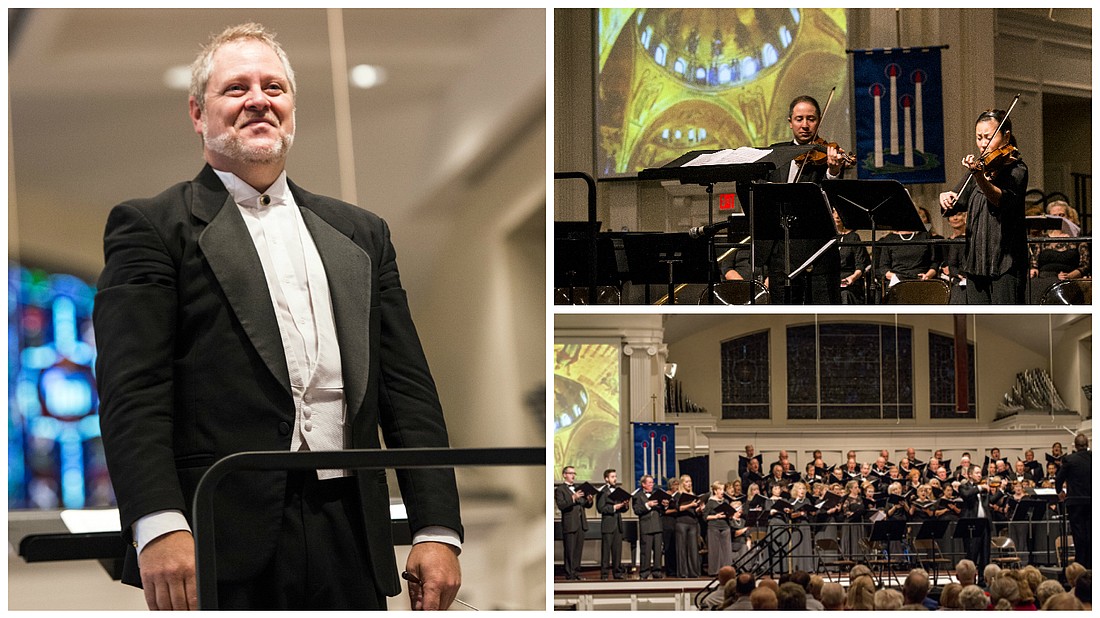- April 25, 2024
-
-
Loading

Loading

It's a concert 300 years in the making.
This Sunday, Nov. 27, Key Chorale will perform its holiday concert, titled "A Banquet Of Voices," featuring the works of Marc-Antoine Charpentier.
The Baroque-era French composer was one of the most prolific of his time. But until recently, his works laid largely forgotten.
It wasn't until a musicologist published his works in the late 1970s that the public discovered it, spurring a revival. Now, Key Chorale will revisit the 17th-century composer with a holiday concert featuring the long-forgotten works, including some that will make their Florida premiere.
Artistic Director Joseph Caulkins explains why Charpentier’s music remained lost so long, his trailblazing style and what it’s like to discover a new voice in music — that’s three centuries old.
“During Charpetntier’s lifetime, he was known, but not well known. After his death, his music was pretty much wholly forgotten. In late ’70s none of his music, other than one or two pieces, was even in print. After they were published from manuscripts, another American, William Christie started recording them. I was a young conductor when I heard it, and I fell in love with this new voice in music — that was 300 years old.”
“I was really surprised hearing how adventurous he was and how much further ahead he was than anyone else at his time — his harmonic language and music — it’s so fresh and such a unique voice. More so in that time period than anyone else, he was composing music he loved to write. When programming old music, I have to find things I think speak to modern audience. That’s not always an easy thing to find, but I think this will touch their souls.”
“There’s so much interesting history that plays into this. Charpentier had a cross-town rival, Jean-Baptise Lully, who saw him as a rival and did all he could to prevent him from getting recognition in his lifetime. If you wanted to perform opera anywhere in France, you couldn’t without the consent of Jean-Baptise Lully. At the time, a big way to make a name for yourself was by performing opera, so a lot of his music was never heard.”
“No one else wrote more music for Advent and Christmas than him, so it’s very fitting for our holiday concert. The main piece we’re doing, ‘Messe de Minuit Pour Noël’ (Midnight Mass for Christmas), is what’s called ‘parody Mass,’ meaning each of its movements is inspired by the melody of a traditional French noël, or carol. Everyone, from peasants to aristocrats, would have known these — Christian or not. So they’re really accessible, tuneful and just joyful carols. Even though the audience won’t recognize them, they have a certain inherent charm. They sound like a tune you should know.”
“The French Baroque style is very unique. There are specific kinds of ornamentation and different ways to interpret and perform the music, and much of it is not written in the music. For me to teach the style, it’s a very unusual one that choirs rarely perform. It’s a little like learning another language. But when it clicks, and it moves from being something academic to something inspirational, there’s something great about that. We’ve enjoyed the process more than usual — it’s been a discovery for all of us.”
“People say karma will eventually win out, and in this case, it did. At the time of his death, very few people in France would’ve known Charpentier’s works. Now, 300 years later, it’s almost impossible to hear music of Jean-Baptise Lully, and Charpenteir is being performed all over the world. History is sort of rewriting the story now. It’s a great opportunity for people to hear something they’ve never heard. We’re all learning and discovering together, and that’s what makes this exciting.”